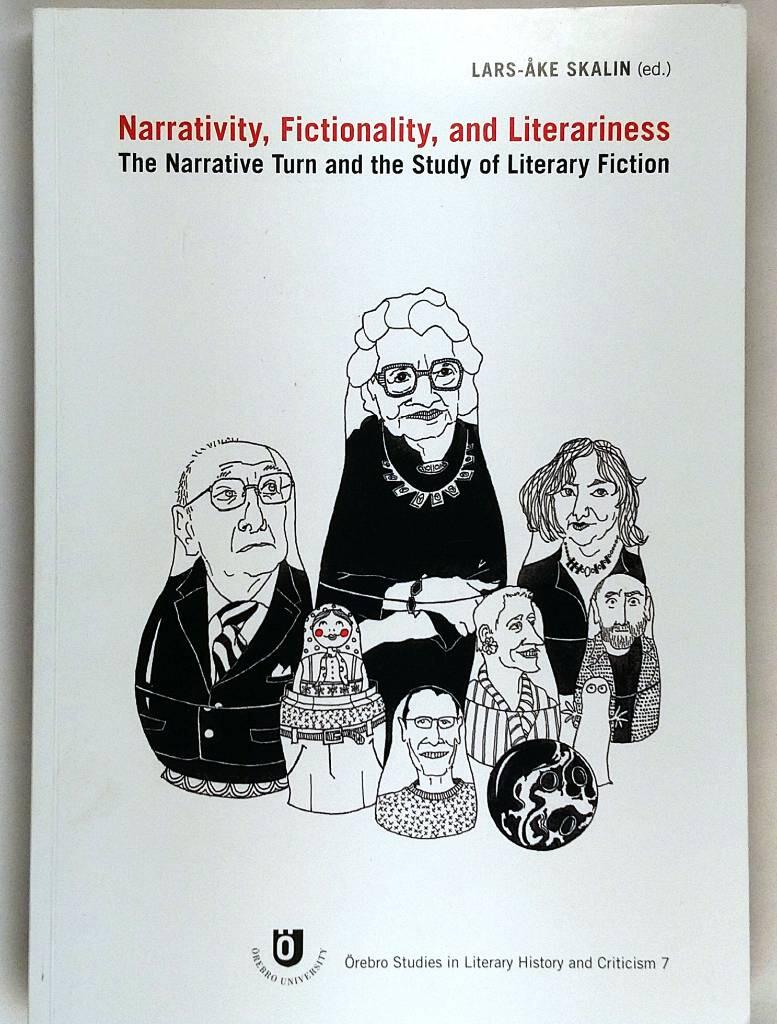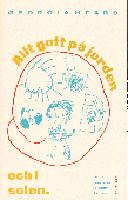
Ironins skiftningar - jagets förvandlingar : Om romantisk ironi och subjektets paradox i texter av P. D. A. Atterbom
Softcover book. Uppsala Acta Universitatis Upsaliensis. 2017. 328 pages.
Fair Condition. Dissertation. Häftad med skyddsomslag. Dedikation från författaren. Liten skada (från etikett?) på skyddsomslagets framsida och lite nött på dess rygghuvud. Understrykningar och små anteckningar med blyerts på ca 40 s.
Publisher's information
- ISBN
- 9789155498832
- Title
- Ironins skiftningar — jagets förvandlingar [Elektronisk resurs] Om romantisk ironi och subjektets paradox i texter av P. D. A. Atterbom
- Author
- Båth, Katarina 1977- - Henrikson, Paula - Sundberg, Björn - Rösing, Lilian Munk - Uppsala universitet Humanistisk-samhällsvetenskapliga vetenskapsområdet
- Publisher
- Uppsala Acta Universitatis Upsaliensis
- Year of release
- 2017
- Language
- Svenska
- Description
- This dissertation explores the intimate relationship between irony and romantic subjectivity, by drawing on feminist psychoanalytical theory, via an examination of the shiftings of irony, and humor, in the works of the Swedish romanticist P. D. A. Atterbom (1790–1855). It looks at the critical role played by irony in the formation of Romantic subjectivity, and explores irony’s potential to undermine dualistically gendered notions of subject-object relations. For Atterbom, irony is an aesthetic concept closely related to drama, informed not only by German Romantic-ironic theorists such as Friedrich Schlegel and Jean Paul, but also by the works of Shakespeare, Ludwig Tieck, and E. T. A. Hoffmann. The thesis follows the shiftings of Romantic irony in Atterbom’s major literary texts: the cycle of poems Blommorna [ The Flowers ] (1811), where the Ovidian transformations are used metafictively to play with the relation between poet, poem, and reader; and the literary satire Rimmarbandet [ The Rhyme Band ] (1810), which, inspired by Tieck’s Der Gestiefelte Kater (1797), uses the metafictive theatre-in-the-theatre motif, as well as carnivalesque and grotesque motifs to expose contrived theatricality and homosocial misogyny in the prevailing culture. The dynamic between the satirist’s subject and the attacked object is a polarized power struggle, where revolt is followed by submission. In this respect, Romantic satire is here conservative. In the fairy tale play Lycksalighetens ö [ Island of Felicity ] (1824–27), tragedy’s irony is a dialectic between the ideal and the real that strives to create both inner and outer renewal. The play reaches out metafictively to the reader and turns her/him into the poet of a new version of the fairy tale. The reading/writing process inscribed in the work thus becomes a form of renewal and liberation from grief, and old, patriarchal gender roles. Finally, the humorous, unfinished idyll Fågel Blå [ Blue Bird ] (1814, 1818, 1858) is a work in many pieces, a fragment, a sketch and a non finito that together stages a restorative creative process, where the reader is asked to take part in joining together the scattered parts of Blue Bird itself. To conclude, irony is a feature of Romanticism, which makes the Romantic, literary subject relational and dialogical, open to its Other, and herein lies a form of ethics and an escape from a conventional, patriarchal notion of the self. I discuss this with Julia Kristeva’s theories on how subjectivity changes when it becomes poetic and Jessica Benjamin’s Winnicott-influenced theory of how play can offer a way out from patriarchy’s strict gender roles. The shiftings of irony in Atterbom’s work show a development from the satirical subject, where an aggressive form of self-assertion conceals a lack of individuality – via tragedy’s painstaking efforts to integrate repressed aspects of the self – to the idyll’s more harmonious subject, who has the capacity to laugh at him/herself and see both the grotesque in the holy, and the holy in the grotesque.
Diss. Uppsala : Uppsala universitet, 2017










